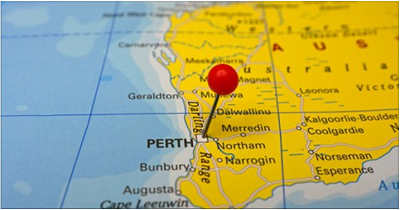15 Things to Check before Buying a House in Australia
Whether you’d like to start a family or you just want to change the scenery, getting a house is one of the biggest decisions you’d have to make in your lifetime.
In order to make sure that everything goes according to your plan, we’ll go through some of the key things you’ll need to check so that you don’t end up with a a sour lemon on your hands!
- Check the property
Before deciding on a house, you may want to check out its condition. Some inspection you can do yourself, while others should be performed by professionals. Here’s a list of some of these things that need to be inspected:
- The structure of the building: look at its foundation, its plumbing, see if the wiring’s done right, and check for potential dampness or cracks in the wall;
- The condition of the roof – is it sinking, steel frame, wood frame;
- If there are fences, are they on the boundary;
- Are there signs of water damage (from rain or flooding)?
- Is the area is prone to flooding
- Are the switches working? If not, the wiring may be faulty
- Does the hot water work?
- Download our home buyers checklist with a full list of things to check by clicking here.
If you want to be even more thorough (and you should be), appeal to professionals to assess the situation. Go to architects that can properly inspect if the building’s structure is secure.
- Research the area
One should never buy a home on impulse – at least this is what Bessie Hassan, money expert from finder, claims. They state that a lot of people claim that they wish they paid more attention prior to buying the home.
For that reason, you should research the house benefits, as well as the neighborhood restrictions and crime rate and make sure you want to spend a significant amount of time in that suburb!
- Find out why they’re selling
According to Anna Porter, a property adviser and specialist in Suburbanite, you should always ask why the owner is selling the house – but make it as subtle as possible. You should dig into the story, yes, but make it sound friendly rather than confrontational. It might reveal more than you actually think – this could lead you to better position your offer, or give you the one reason not to buy that property!
- Is the property close to important facilities?
This aspect is crucial if you have a family. Sure, living in a rural area has its benefits, but prospective homes should be at least close by to what would be important for you and your family.
The home should be within walking distance from convenience stores, a green space and public transport.
If you have kids, it’s only natural that you’d like their school to be nearby, right? Or at least, there should be a bus stop that goes to the school in the proximity and some form of a play ground – kids can drive you mad when they’re couped up inside a house with nowhere to go!.
- Check the titles to ensure the boundaries are correct
Nothing is off-limits when we are talking about such a huge investment. So, when you are buying a property, you need to make sure that the boundaries are the same as the ones on the titles.
Inspect the boundaries – if you think they’re off then get a surveyor to check them for you. If you neighbours garage is spilling over on your land that can cause some serious issues in the future.
- Check your finances
Many people buy houses on the spot at a home opens or through auctions, without being completely sure whether they will actually get their home loan approved!
Avoid disappointment and consider getting a pre-approval, or at the very least have a chat with a well-established Mortgage broker to confirm you are eligible to apply for the amount you need.
- The house needs to offer you enough space
Maybe right now, you are just enjoying a young couple’s life, but you never know when a new additional to the family (or several!) might appear. That’s why you need consider that your future kids will have room to grow and play.
Another thing to take into consideration would be if there’s enough buffer between the bedrooms and the living room. When we go into our bedrooms we expect peace and tranquillity – if someone decides to play something or watch the TV in the living room, that shouldn’t disturb our sleep.
- Check with the local council
It can’t hurt to check with the local councils either to see whats happening in the area and what building approvals are in place.
The last thing you want to find out after moving day is that the vacant land next to your property is being developed into a block of high rise apartments.
This would mean that your future neighbors would be able to see your backyard and it might disrupt your peace, or it could just block the lovely view you thought you had.
You can also check with the council to ensure there are no un-approved structures on the property! Not all home owner seek out council approval before installing their patio, new decks and pools – so it doesn’t hurt to check they are on the plans and approved!
- Know your neighbors
When you’re viewing the property, take a look at the nearby houses to see if there are any signs of problem tenants. Whilst there isn’t anything wrong with most of the state housing tenants, they can cause a great deal of noise and disruption in some cases.
Signs to look out for are broken bottles, rubbish on front lawns, beer cans, car wrecks, rubber tyre marks on the roads and unsightly front yards are all signs of trouble tenants.
Try visiting at different times of the day. Walk around the street and talk to those that are watering their gardens and start up a conversation. Neighbors often love to gossip!
Does the weather affect the property? Are there are any wild animals you should be prepared to deal with? Is the street generally quiet? These are other things that you could ask your future neighbors.
- Inspect the surrounding area
According to Porter, by checking the area, you will know if the house is in the proximity of things that you might not want to have near. Sure, the house may be in a quiet neighborhood – but if you have a tall UFO-like tower next to you that blocks all the morning sun, that might be a deal breaker. Checking the surrounding area will tell you whether you like that new location or not.
- Will you get enough natural light?
Natural light is a key ingredient to a healthy lifestyle. This often gets overlooked when people take a first look at a house. Then, it is noticed only after you’ve moved in and settled down.
The lack of light might lead to disappointment, so make sure that you put it on your checklist. For optimum natural light, try looking for houses that face South. Also, the more windows it has, the better.
- Does it come with a desirable backyard?
Gardening is a fun activity for many of us and plenty of green space is something desired by anyone – but gardening isn’t for everyone.
No space and you’ll wish you had more room, too much garden and it will grow out of control and you’ll hate it!
Let’s say that you want to perform various sports activities with your kids, like football – make sure that your backyard isn’t on a slope because that would defeat its purpose.
Check the property has adequate reticulation otherwise that nice lush garden, could dry up quickly over summer.
- How high are the ongoing costs?
Every home comes with a series of expenses that you can’t avoid. However, you can still find some bargains out there. Look for council rates that are more or less similar to the ones you had at your previous location, or at least still affordable.
Consider if there are any strata levies or ongoing costs such as pool maintenance – this can be costly, but even just the maintenance itself can put some home buyers off – once you let it go, it’s going to cost more to bring it back up to a usable condition again.
Check to see if your insurance provider has any restrictions and get a quote to make sure its not going to be over the top due to a flood area or higher risk rating.
- Get the building, timber and pest inspection
According to Michelle Amarant, the director at Amalain Buyer, it’s very important to get all the reports on the home – as not every house is built the same. Does the house have any leaks in the roof? Are there any underlying bug issues that might be a concern? Plus, a building inspection might bring to light a series of design issues that can become fairly costly in the long run.
- Look for any environmental hazards
Before buying a property, you should always check for environmental hazards – and Anna Porter stresses greatly on this. You may live in a wonderful-looking home – but if your area is prone to floods, earthquakes, bush fires, and other environmental hazards, then you can’t say your investment was a complete success. Even worse cases could be nearby chemical factories that are leaking into the near by soils or pumping our massive amounts of toxic gases in to the air. Or, perhaps there’s too much noise – after all Perth Airport is right in the heart of the metro area and just 10 minutes from the CBD!
You may get insurance, but some of them may not cover all of these hazards. If the investment is not worth it, you might want to continue looking around.
Conclusion
Hopefully, we managed to get through some of the most important things when we talk about moving. Always do your due diligence and perform as much research as possible before you decide on acquiring a new place.
We’ve created a free home buyers guide and property buyers checklist to help you narrow down your search with a checklist of some of the key things to check before your buy, or at least at your final inspection!


